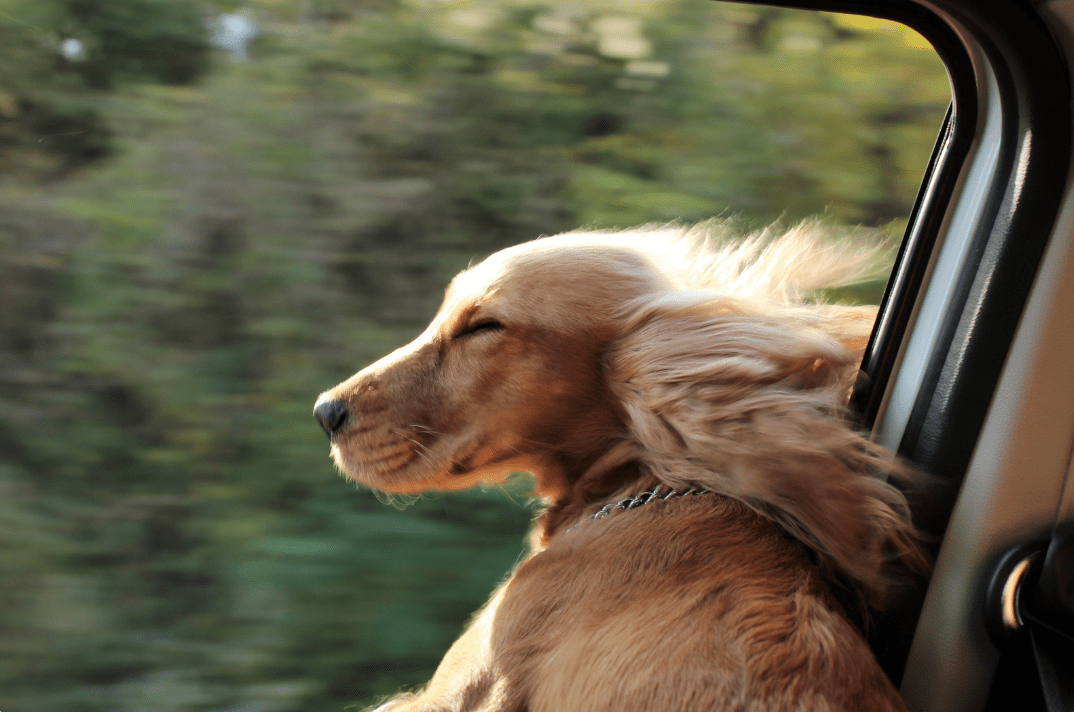
Car Anxiety in Dogs
It’s not uncommon for dogs to develop car anxiety, turning even short trips into stressful ordeals. That’s why it’s important that you understand and address your dog’s car anxiety so you can enjoy a pleasant car ride together. We’ve listed some practical tips to help ease your dog’s car anxiety and transform them into happy and relaxed travelers.
Understanding Car Anxiety in Dogs
Car anxiety in dogs manifests in various ways, such as whining, shaking, excessive drooling, or even vomiting. It often stems from a lack of exposure to car rides, negative associations (like visits to the vet), or motion sickness. Recognizing these signs is the first step in helping your dog overcome their fear. Once you understand why your dog feels this way, you can devise an effective plan to ease their discomfort.
Creating a Positive Association
Transform your dog’s perception of car rides from fearful to favorable. Start by allowing your dog to explore the car while it’s stationary, and offer treats and praise. Gradually progress to short, pleasant trips around town—like to a favorite park or a dog-friendly beach. Consistently pairing car rides with positive experiences like treats, affection, or fun destinations can significantly change your dog’s attitude towards traveling.
Comfort and Safety
Ensuring your dog’s comfort and safety is key. Use a well-ventilated crate or a dog seat belt to secure them. You can also bring their favorite blanket or toy to create a familiar environment. If motion sickness is an issue, consult your vet about possible remedies. It’s generally advisable to avoid feeding your dog right before the trip to prevent an upset stomach.
Gradual Exposure
Gradual exposure is vital. Start with short drives around the neighborhood, gradually increasing the duration as your dog becomes more comfortable. This approach helps your dog acclimatize to the motion and sounds of the car, making longer journeys more manageable.
Professional Help
If your dog’s anxiety is severe, consider seeking the help of a professional dog trainer or behaviorist. Professional dog trainers or behaviorists can offer personalized strategies and support to address your dog’s specific needs. You can also talk to your vet about any medications to help relax your dog or ease motion sickness before longer trips.
Patience and Consistency
Easing your dog’s car anxiety requires patience, understanding, and consistency. By following these tips, you can transform car rides into enjoyable experiences that strengthen the bond between you and your beloved canine companion!
For more information on traveling with your dog, check out our complete list of travel tips!
